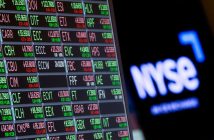Recent developments have raised concerns about the U.S. dollar’s role as a global safe-haven currency. Analysts at Capital Economics suggest that the dollar’s reserve status is now “at least somewhat in question,” citing the impact of recent trade policies and market volatility.
President Trump’s announcement of extensive tariffs on April 2, followed by subsequent delays and exemptions, has introduced significant uncertainty into financial markets. This unpredictability has led to a decline in the dollar’s value, reaching a three-year low, and has caused investors to seek alternatives like the euro and yen.
The traditional view of the dollar and U.S. Treasuries as safe-haven assets is being challenged. Capital Economics notes that “indirect damage” from tariffs has generated extreme uncertainty around the broader economic outlook, undermining confidence in U.S. institutions and asset markets.
While the dollar’s dominant role is supported by longstanding global networks, the current environment suggests a need for policymakers to address these challenges to restore confidence in the currency’s stability.




